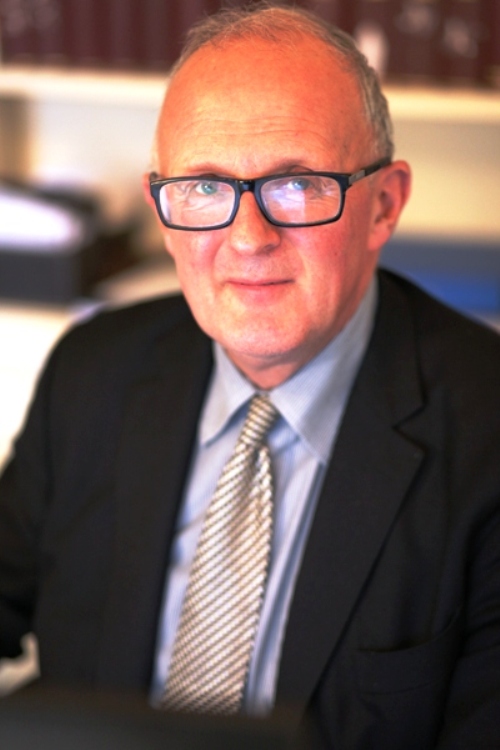 I welcome all returning students and Fresher undergraduates and graduates in particular. I look forward to meeting you all when the time is right. Meanwhile please do abide by the restrictions we have to impose.
I welcome all returning students and Fresher undergraduates and graduates in particular. I look forward to meeting you all when the time is right. Meanwhile please do abide by the restrictions we have to impose.
O'Neill/ Cookson Conversation:
On 29 September, we held on MS Teams a wonderful Principal’s Conversation with Rt Hon Claire O'Neill, former MP for Devizes and UK Minister of State for Climate Change, Energy and Clean Growth, and Clive Cookson, Science Editor at the Financial Times. We covered a wide range of subjects loosely linked round climate change, covid and science journalism. The interchange between politician and scientists was also present. Claire stressed the need for local initiatives in tackling climate change and emphasised the importance of the recent pledge by China to cut their emissions. There was a very lively question and answers via the chat function. Claire floated the possibility of tree planting of one hundred trees by each Brasenose alum as a (partial) solution to the climate change crisis. 102 attended from around the world. You can view the Conversation on https://www.bnc.ox.ac.uk/alumni/recordings.
Convocation:
It is not usual to be invited to a formal university event with the instruction to wear “gowns, hoods and face covering” but that was the instruction for this year’s Convocation held on 6 October. The Vice Chancellor gave a rousing Oration covering in particular the achievements of Oxford in seeking to combat covid 19 on which at least 500 academics and researchers are involved. She said that this exploded the myth that the University is slow and cumbersome to react. She referred to the recent rankings which put Oxford on top of world universities and summed it up that if Oxford were a currency it would be the gold standard. She also announced the launch of Black Academic Futures to provide scholarships for black student. She summed up that this was a year of difficulty and oddity but also real achievements.
Brasenose and the First World War:
I suppose many of us have been thinking during the pandemic of other tragedies affecting the College. I have been looking at the effect of the First World War on College. After the declaration of war with Germany in August 1914 around a couple of thousand Oxford students volunteered for service and only 1,400 started the new term in October. By the end of 1917 there were only 315 undergraduates in residence, most of them foreign students from Asia or men unfit for service: BNC was home to just eight. The Examination Schools and Somerville College became military hospitals and normal teaching came to an end except for scientific research dedicated to military issues, for which the new degree of DPhil was created in 1917. The university death rate average was 18%, higher than the national average of 12% owing to the fact that so many Oxford men were subalterns in the front line. A total of 661 members of the college fought in the war and 114 were killed. Their names are recorded on a memorial tablet by the chapel door. There's a piece about Brasenose and the First War in a past Brazen Nose, p. 92 here https://www.bnc.ox.ac.uk/downloads/Vol_48_The_Brazen_Nose_2014_reduced_size.pdf, and also please look at https://llewelynmorgan.com/2014/05/21/a-mods-don-at-ypres/ and here https://llewelynmorgan.com/2014/07/26/grave-12-row-d-plot-1/
Miscellany:
I recommend listening to our Kurti senior fellow Professor Russell Foster, Director of the Sleep and Circadian Neuroscience Institute at the University of Oxford, discussing the function of the circadian rhythm in humans on BBC World Service
https://www.bbc.co.uk/programmes/w3csy1qm
It was also good to read about Abigail Green’s Jewish Country House project in the Times last week.
I have read The Elizabethans by Andrew Marr and Houdini by Adam Begley. I have also been watching the ITV series of The Singapore Grip based on the novel of the same name by J G Farrell one of our distinguished alumni. He was here during Maurice Platnauer’s time as Principal. He arrived to read law in 1956 but changed to history. Sadly he contracted polio in his first term and had to spend time in an iron lung.
